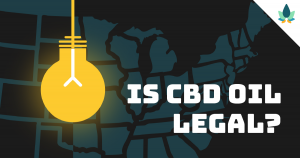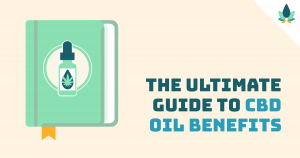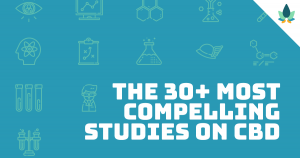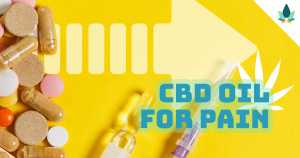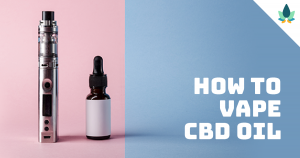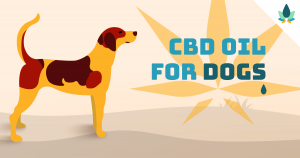Click To Find Out
If CBD Is Legal In Your State
Still confused whether CBD oil is legal where you live?
Jumping into this conversation generally brings up other questions, concerns, red flags, and red tape.
Depending on who you speak to, the answer you’ll receive will be different. But, it’s important to understand the full picture, to understand the terminology, and to become as educated as possible in order to make the decisions that are in your best interest.
For that reason, our answer to the “Is CBD oil legal?” question is, “Mostly. But…” with a lot of information following the “but.” It’s become even more complicated with the recent passage of the 2018 Farm Act, which we will cover shortly.
In this piece, we will do our best to outline the answer using legal cases and terms, along with some guidelines on how to proceed. Because of the overwhelmingly positive effects of CBD oil, understanding its legality, and following updates that relate to this are absolutely essential.
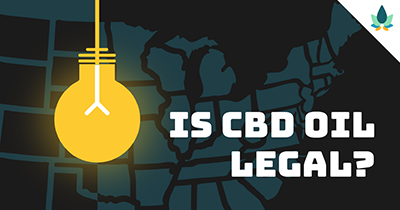
Check out our “Is CBD Legal?” intro video (2min)
The Difference Between THC and CBD
While you can find more information on our “What is CBD Oil” piece, understanding what CBD oil is – and what it is not – is absolutely critical to piecing together whether it is legal or not.
CBD stands for cannabidiol, which is a type of cannabinoid. Cannabinoids are naturally occurring chemicals that can be found exclusively in cannabis plants. This is where the confusion – and often the concern – start to creep in.
Stick with us here.
Before writing it off as an illegal substance, let’s dive in further.
There are approximately 113 unique cannabinoids in cannabis plants, which can be classified as hemp plants or marijuana plants (there’s a difference!). CBD is one of them and is the second-most prevalent cannabinoid found in the plant; THC is another.
This distinction is absolutely critical to understand because THC is the cannabinoid responsible for the “high” produced by traditional marijuana; it’s where the negative connotations and associations generally begin.
But here’s the thing: they can be separated.
While “regular” or “medical” marijuana generally contains both CBD and THC, the two cannabinoids can be derived separately from the plant.

CBD is the compound responsible for the overwhelmingly positive side effects and benefits of marijuana usage, whereas THC is solely responsible for the “high,” which can be a positive or negative, depending on who you ask.
CBD is the compound responsible for the overwhelmingly positive side effects and benefits of marijuana usage…
Simply put: THC and CBD are unique cannabinoids with separate properties. CBD cannot, in any case, get you high when sourced correctly. It can, however, provide the benefits you’ve probably heard of and that have led you to this point in your research.
Staying Completely Legal: CBD from Hemp Plants and the Farm Act
The Agricultural Act of 2014, also known as the 2014 Farm Bill, was essentially a pilot program for the hemp industry by legalizing core cultivation activities that have since enabled the hemp industry to grow in remarkable ways.
In December of 2018, the House and Senate passed – and President Trump signed – the new 2018 Farm Act. (1)
The Act removes hemp – officially defined as cannabis plants containing less than .3% THC – from the Schedule 1 Controlled Substances list from a Congressional standpoint.
A few days after the Farm Bill went into law, the FDA issued a statement stating any hemp-based CBD product that is marketed as having therapeutic benefits or as a dietary supplement is illegal to sell unless the FDA has reviewed and approved it.
While still considered a Schedule 1 Controlled Substance by the DEA, CBD is considered the same as any other agricultural commodity from a federal viewpoint, making it legal to grow and purchase in the United States.
It also provides farmers who cultivate hemp their water rights and other grants, marketing, research and insurance that would be expected of other growers of other crops.
While hemp-derived CBD sourced from marijuana plants still remains subject to individual state laws, when sourced from hemp products, CBD can be purchased and consumed in all 50 states as long as it is grown in accordance with the Act. This means that CBD’s legal status on a federal level is quite clear, however, on a state level there’s some variation.
Some additional positive news happened in June 2018, the Food and Drug Administration approved the first CBD-derived drug — Epidiolex, which contains purified CBD — to treat certain childhood seizure syndromes. Very promising findings and many are interested in long term effects. It’s likely that CBD will be used to treat other medical conditions in the near future.
CBD Drug Test: Will it show up?
Is there a CBD drug test? Will using CBD cause you to fail a drug test? We understand your concern. Read on.
Drug tests are common in today’s world. For those with specific backgrounds that warrant drug tests, those in certain professions or interested in starting a new job, for participants in high school, college, or professional sports, or even other reasons, most of us will undergo a drug test at one point or another.
Most of these tests are designed to screen for specific illegal drugs, prescription medications, and other compounds in the urine, hair, saliva or blood.

For the purpose of this piece, we’ll focus on urine tests, the most common.
So will CBD affect test results?
A general urine screening for the presence of marijuana contains antibodies that interact with and detect THC – the psychoactive, “high” producing cannabinoid found in cannabis plants.
Its main metabolite is 11-nor-delta9-caboxy-THC if you’re looking for a specific language. It is not designed to detect the presence of CBD alone.
This means that for standard CBD oil users – those who use certified products containing less than .3% THC, as regulations current require – a drug test shouldn’t raise any red flags.
Before you get too excited…
Usage amounts matter in this case. If, for instance, an individual was using an extremely high dose of CBD on a daily basis, 1,000 mg, for example, they would be exposed to around 3 mg of THC per day.
A dose of this size could cause a result to be positive even if the user was not consuming traditional marijuana containing standard amounts of CBD and THC.
Responsible use still matters.
If drug testing is a part of your life or could come up in the very near future, it may be in your best interest to search for a CBD oil that contains zero THC.
These are often more costly, but could minimize the risk of throwing a positive when undergoing a urine screening for THC.
Learn About the History of CBD Oil
To understand the current issues surrounding the legality of CBD hemp oil it’s best to go back in history and take a look at how America’s War on Drugs changed everything.
CBD and medical marijuana have been a part of ancient societies and healing rituals for as long as oral and written history have existed.
The first written account occurred sometime around 2727 BC when Emperor Sheng Neng of China drank a tea containing cannabis to help with his numerous health ailments.
From there it seemed to grow in popularity, however, evidence is lacking about specific details. In the middle of the 19th century, Queen Victoria used cannabis plants to alleviate monthly pain relating to her menstrual cycle.
Around the same time, William B. O’SHaughnessy began documenting the potential for cannabis’s role in medicinal techniques and performed a wide range of trials and experiments.
Because of the limited knowledge and harvesting techniques at this point, CBD and THC were both involved in the use of cannabis.
This began to change in 1940 when CBD was isolated from THC and other cannabinoids, demonstrating its active properties and benefits as a standalone product without the psychoactive qualities of THC.
Shortly after this, the War on Drugs started to change everything. During the Nixon administration in 1971, the size and presence of federal drug control agencies increased at a rapid rate, along with laws and punishments for breaking them. (2)

As the initiative gained traction, the commission appointed by Nixon recommended decriminalizing the possession of marijuana for personal use, however, the report was rejected and marijuana remained a part of the larger group of “drugs” that were criminalized and prosecuted.
Eleven states did take steps to decriminalize marijuana, but the statutes were short-lived. Teen use of marijuana came into focus and prosecution continued, despite recommendations to the contrary.
We’ll go more in-depth in the following sections, however, the legal terminology that defines “marijuana” as illegal, does not use the term “hemp.”
Therefore, cannabinoids – like CBD – obtained from the hemp plant, containing less than .3% THC do not technically fall under the legal definition of marijuana. Complex? Yes. Confusing? That’s okay.
CBD Law Has Gotten More Confusing…
The complexity surrounding the legality of CBD sourced from marijuana plants has continued to increase as individual states have begun passing legislation to legalize various forms of marijuana while it remains illegal at the federal level. (3)
Starting with election day 2012 in Colorado and Washington, voters began to decriminalize and legalize the possession and purchase of marijuana in various forms. (4)
California, Massachusetts, Maine, and Nevada followed suit in 2016. Vermont was close behind with legalization occurring through the state legislature (as opposed to voters) in 2018.
As of today, marijuana is legal for adult users in these 18 states – Alaska, California, Colorado, Connecticut, Illinois, Maine, Massachusetts, Michigan, Montana, New Jersey, New Mexico, New York, Nevada, Oregon, South Dakota, Vermont, Virginia, Washington, and District of Columbia.
As far as recreational marijuana goes, many bills are on the table in other states, however, it remains illegal for recreational use in: Idaho, Wyoming, Nebraska, Kansas, Iowa, Wisconsin, Kentucky, Tennessee, Mississippi, Georgia, South Carolina, and North Carolina. On top of that, the medical use of marijuana is legalized in 36 states. (5)
This legalization has begun because of the aforementioned difference between marijuana and “harder” drugs, along with the benefits that the cannabis plant can provide. This is exciting for many, but also complicated due to the fact that possession of marijuana is still considered a criminal offense at the federal law level. Flying across and transporting marijuana across state lines, drug tests for employees following a visit to one of the states where marijuana is legal and other complications have led many to avoid the topic – and consumption – altogether.
Under the 2018 Farm Act, CBD sourced from hemp plants is legal in all 50 states, as we mentioned previously. However, CBD from marijuana may remain a gray area for the foreseeable future.
Clarifying Laws & Definitions
Looking at the facts alone, coming to a conclusion on the legality of CBD can be, well, hazy. This means looking at legal precedents and definitions is more important than ever.
Let’s look at a few, starting with 2004’s Hemp Industries Association vs. DEA. In this case, the court ruled that marijuana and synthetic THC were, in fact, banned under the original Controlled Substances Act, which is where much of the conversation and contradictions surrounding CBD have both stopped and begun, respectively. (6)
The case did not define the legality of CBD specifically. This means that digging a little deeper into the legal definition of marijuana is critical when deciding whether it is legal or not.
Ready for the details?
Marijuana is defined by the CONTROLLED SUBSTANCES ACT as:

“All parts of the plant Cannabis sativa L., whether growing or not; the seeds thereof; the resin extracted from any part of such plant; and every compound manufacture, salt, derivative, mixture, or preparation of such plant, its seeds or resins; but shall not include the mature stalks of such plant, fiber produced from such stalks oil or cake made from the seeds of such plant, any other compound, manufacture, salt, derivative, mixture, or preparation of such mature stalks (except the resin extracted therefrom), fiber, oil or cake, or the sterilized seed of such plant which is incapable of germination.” (7)
So. According to the Controlled Substance Act definition itself, certain parts of the cannabis plant are clearly illegal, while others fall into a grayer area. One of these – for the most part – is CBD extracted from the “legal” parts of the cannabis plant, and non-marijuana industrial hemp plants, which, as defined by Section 7606 of the Farm Bill are cannabis plants with less than 0.3 percent THC. (8, 9)
As mentioned above, CBD is no longer considered a Schedule I controlled substance under the Farm Act. However, under the DEA’s definition, it remains on the list. This allows for individual states to create exceptions to the status of CBD, even when cultivated from hemp plants grown legally under the act. It also maintains illegal status for any CBD sourced from plants produced in settings that are not consistent with that Act, or by an unlicensed grower.
As a reminder:
| Hemp | Marijuana | |
|---|---|---|
| Is it Cannabis? | Yes | Yes |
| Chemical Makeup | Low THC (<0.3%) | High THC (5%-35%) |
| Phychoactive? | No | Yes |
| Cultivation | Requires minimal care. Adaptable to grow in most climate | Grown in carefully controlled atmosphere |
| Applications | Automobiles, body care, clothing, construction, food, plastic, etc | Medical and recreational use |
Is CBD Legal Federally?
Determining whether CBD is considered legal is clearly a challenge. Depending on the source, you could receive a loud, resounding “of course,” a more hesitant shoulder shrug, or a blatant “no.”
It is our belief that, when harvested in compliance with the Farm Bill and with the precedents set by Congress, CBD oil containing less than 0.3 percent and harvested from industrial hemp plants is indeed federally legal.
While CBD sourced from hemp plants is legal at the federal level, and mostly enforced similarly by individual states, proceeding with caution is still absolutely essential.
Just like other supplements on the market, the quality of CBD oil could affect the benefits it provides, along with the way it impacts your overall health. Doing your own research should be your main mission if you’d like to pursue the health benefits.
Is CBD Legal Internationally?
Below is a list of countries that have legalized CBD products. It’s important to understand that looking into the laws of each country is a necessity, as there are different regulations pertaining to the source of CBD and the amount of THC permitted in the products you carry.
Countries that allow CBD include:
- Argentina
- Austria
- Belgium
- Belize
- Bulgaria
- Canada
- Chile
- China
- Colombia
- Costa Rica
- Croatia
- Cyprus
- Czech Republic
- Denmark
- Estonia
- Finland
- France
- Georgia
- Germany
- Greece
- Guam
- Guatemala
- Hong Kong
- Hungary
- Iceland
- India
- Ireland
- Italy
- Latvia
- Lithuania
- Luxembourg
- Malta
- Netherlands
- Norway
- Paraguay
- Peru
- Poland
- Portugal
- Puerto Rico
- Romania
- Russia
- Slovakia
- Republic of Slovenia
- South Africa
- Sweden
- Switzerland
- Virgin Islands
- United Kingdom
- Uruguay
According to DrugPolicy.org,
those interested in purchasing CBD oil legally should:

Do Careful Research
and request information from any suppliers relating to the pesticides, fungicides, fertilizers, and other solvents that were used during the growing process that could remain following cultivation.
Request Information
and documentation about the potency and dosage of the CBD product they intend to purchase.
Look for Clear Labeling
and contact information.
Ask for Documentation
of the safety and quality of a given product. This could include the results of tests for molds, fungus, and bacteria.
Suppliers trying to sell CBD should be willing to stand behind their product while clearly sharing information. If you are unable to verify the validity of any claims, or, if reviews and other research bring up concerns, it may be best to pursue other product options. Your health should always come first.
While the official word on CBD as an illegal or legal substance remains somewhat “gray,” arming yourself with information and understanding the demonstrated benefits of the oil, its various forms, and the way it may further your health journey is critical.



